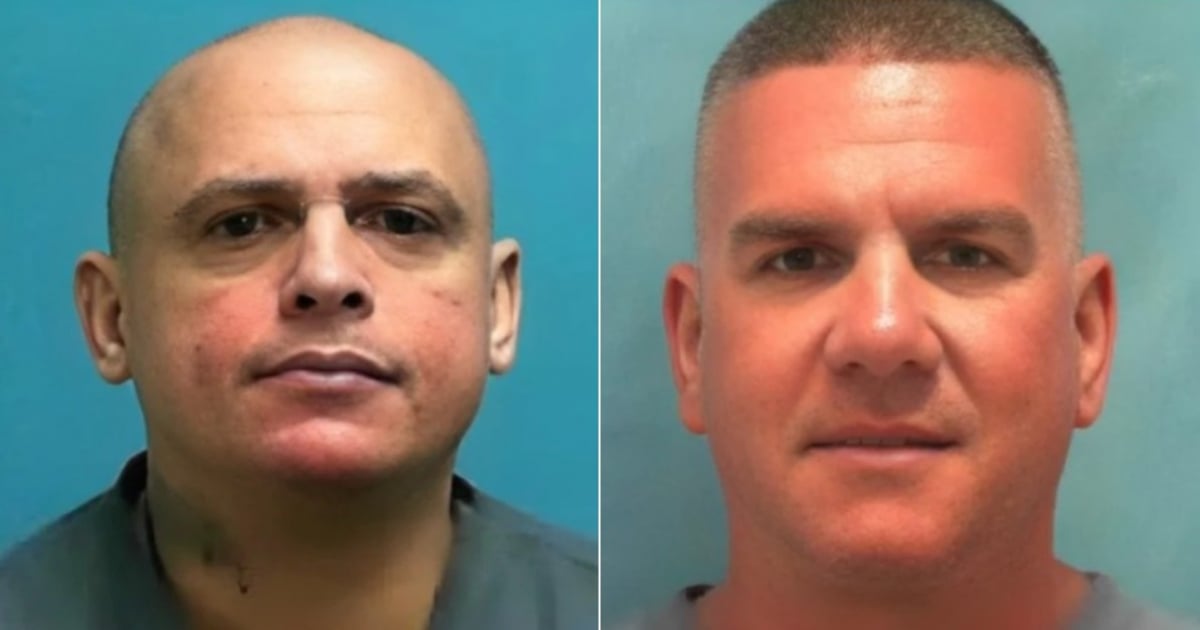Former U.S. President Donald Trump recently took to his social media platform, Truth Social, to spotlight eight immigrants with criminal records who have been detained by ICE. Among them are two Cubans. "Tough guys. Let the courts allow me to do my job," Trump posted, sharing images of Enrique Arias-Hierro and José Manuel Rodríguez-Quiñones, who were recently deported to South Sudan.
The deportation of Arias-Hierro, aged 47, and Rodríguez-Quiñones, aged 54, to South Sudan has sparked both legal and ethical controversy. However, Trump has hailed this action as a triumph against criminal immigration. These two men, who have extensive criminal records in Florida, are among over 42,000 Cubans with final deportation orders that the regime in Havana refuses to accept, according to the Department of Homeland Security (DHS).
U.S. Deportation Tactics Under Scrutiny
As Cuba continues to resist taking back its nationals, the U.S. has resorted to deporting individuals to third countries, in this instance, one of the most dangerous places on earth: South Sudan. Rodríguez-Quiñones, with convictions for drug trafficking, murder, and violent assault, and Arias-Hierro, found guilty of homicide, kidnapping, and armed robbery, were part of a deportation flight that included individuals from Myanmar, Vietnam, Laos, and Mexico.
Federal Judge Brian E. Murphy of Massachusetts attempted to halt the deportation, arguing that the men were not given a fair chance to legally contest their removal. Nonetheless, the DHS proceeded with the deportation, ignoring the court's order.
Politicizing Immigration
The DHS defended its actions by labeling the deportees as dangerous criminals. Spokesperson Tricia McLaughlin criticized the judicial intervention, stating, "It is absurd for an activist judge to force the United States to bring back these uniquely brutal monsters." Trump's criticism of the judicial system, claiming it harms the country, was echoed by the DHS in its public communications.
This politically charged language has intensified debates over the use of immigration policy as a tool for electoral gain and propaganda.
Controversial Choice of South Sudan
The decision to deport individuals to South Sudan has faced strong opposition. The U.S. Department of State acknowledges the nation's rampant issues, including torture, extrajudicial killings, and sexual violence. Despite extending Temporary Protected Status (TPS) to South Sudanese nationals to prevent their deportation, the U.S. opted to send Cuban deportees there, invoking the "Safe Third Country" principle, a policy Trump bolstered to rid the U.S. of unwanted immigrants when their home countries refuse their return.
Ongoing Tensions with Cuba
This situation has exacerbated tensions with the Cuban regime. According to attorney Avelino González, Havana does not accept the repatriation of citizens who left the island before 2017, leaving many Cubans in a state of immigration limbo. Meanwhile, ICE continues to seek case-by-case deportations, exploring "alternative" destinations such as El Salvador and now South Sudan.
Attorney Willy Allen warns that these cases set a troubling precedent: "My advice is for these individuals to seek settlement in a third country. Otherwise, their lives could become a nightmare."
Human Rights Concerns
Human rights organizations and legal experts have criticized what they see as a breach of due process and the exploitation of deportation for political purposes. The Foreign Enemies Act, invoked by the DHS, has faced judicial challenges while the Supreme Court has partially blocked its enforcement. Nevertheless, the government continues to employ it to justify expedited expulsions.
While the criminal history of Arias-Hierro and Rodríguez-Quiñones may elicit limited sympathy, the broader issue extends beyond these two individuals. Sending them to a nation lacking basic security assurances, while ignoring court rulings, sets a hazardous precedent for thousands of immigrants in the United States.
Key Questions on U.S. Deportation Policies
Why were Arias-Hierro and Rodríguez-Quiñones deported to South Sudan?
Given Cuba's refusal to accept deportees, the U.S. has turned to third countries like South Sudan for deportation, despite its dangerous environment.
What has been the reaction to the deportation of these Cuban nationals?
The deportation has sparked ethical and legal debates, with human rights organizations condemning the lack of due process and the political use of deportation policies.
How have U.S. immigration policies changed under Trump?
Under Trump, immigration policies have become stricter, with increased deportations and the use of the "Safe Third Country" policy to send immigrants to third nations when their home countries refuse them.
